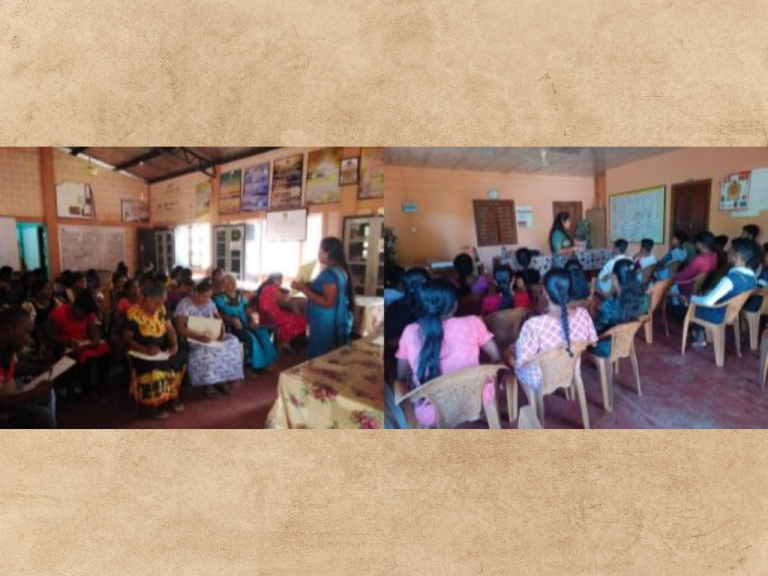Enhancing Psychosocial Well-Being in Mullaitivu District
Project Summary: Enhancing Psychosocial Well-Being in Mullaitivu District
The proposed project focuses on improving psychosocial well-being in Sillavathai, Sillavathai
South, and Kalapadu South, under the Maritimepattu Divisional Secretariat in Mullaitivu District. It aims to address critical psychosocial challenges, including domestic violence, trauma, and mental health issues, targeting marginalized groups such as women, youth, and survivors of gender-based violence (GBV).
Key Objectives and Outcomes:
1. Increased Awareness: Raise community understanding of psychosocial issues through
awareness sessions targeting Civil Society Organizations (CSOs), youth, and the general
public.
2. Community Resilience: Address root causes of psychosocial distress through community initiatives, fostering stronger support systems.
3. Improved Access to Support: Facilitate counselling and referrals to health and social services for affected individuals.
4. Capacity Building: Train 25 service providers on trauma-informed care and GBV-related issues to ensure effective support.
Key Activities:
Formation of Grassroots Leadership and Advocacy Committee (GRLAC): A network of 15 community representatives will organize 9 regular meetings and implement 3 community-based initiatives addressing trauma and violence.
Awareness Creation: Seven sessions will combat stigma and enhance understanding of
mental health within the community.
Referral System: Establish a standardized and efficient pathway involving 15 stakeholders for coordinating psychosocial and health services. Conduct three screenings
to identify individuals in need of support.
Counselling Services: Provide 360 counselling sessions to 30 individuals suffering from
trauma and psychosocial distress.
Service Provider Training: Conduct two training programs for 25 psychosocial support
providers on trauma, grief, and GBV-related care.
Beneficiaries:
Primary Beneficiaries: Community members, particularly survivors of domestic violence and youth, will benefit from GRLAC activities, awareness sessions, and community initiatives.
Counselling Recipients: Thirty individuals will receive trauma-focused counselling.
Trained Service Providers: Twenty-five health and social workers will be equipped to handle complex psychosocial issues effectively.
Implementation Approach:
The project will be implemented in collaboration with CSOs, district officers, healthcare providers, and community leaders. Experts will lead awareness programs, counselling sessions, and training to ensure culturally sensitive and comprehensive care.
This holistic initiative aligns with national mental health strategies and addresses the specific
challenges of a post-conflict population, fostering resilience and psychosocial well-being in the targeted communities.









 Visit Today : 76
Visit Today : 76 This Month : 926
This Month : 926 This Year : 51502
This Year : 51502